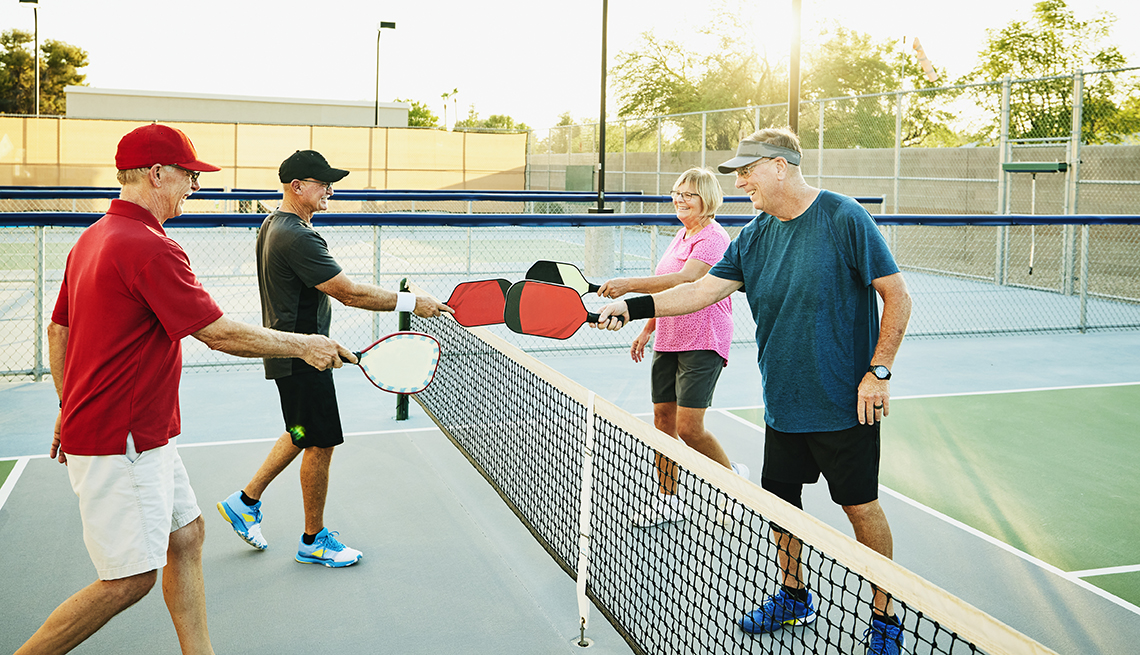
How to keep score in doubles pickleball
- Select a language for the TTS:
- UK English Female
- UK English Male
- US English Female
- US English Male
- Australian Female
- Australian Male
- Language selected: (auto detect) - EN
Play all audios:

It’s frequently said that pickleball is one of the easiest games for beginners to pick up, but while it’s true that many players have no issue learning about dinking or the “kitchen,”
mastering the art of scoring often takes a lot more effort. After all, keeping track of points in pickleball is a bit more complicated than in most other racket (or paddle) sports. “Wrapping
your head around the scoring system might seem tricky at first,” says Eva Welsher, an AARP Champions Tour Pickleball Pro. “However, once you understand the basics, you’ll be all set to
handle the score like a seasoned pro.” Sometimes people are having so much fun playing that they forget the score. We can’t help you with that, but we can teach you how it’s done. If the
below seems a little confusing, don’t worry. After you’ve played a few games, you’ll get it. Remember, learning a new way of scoring and remembering the score, especially while exercising
and socializing, is a great workout for your brain. Here are six simple steps to scoring the game: 1. THE GAME IS PLAYED TO 11 POINTS, BUT YOU MUST WIN BY TWO In doubles pickleball, games
are played until 11 points, but a team must win by two points, not just one. And only the serving team can score, with both players getting a chance when it’s their side’s turn. Unlike
tennis, the server only gets one chance to get the serve in, not two. 2. SCORES CONSIST OF THREE NUMBERS At the start of every point, the server has to call the score aloud for both sides to
hear, and it must consist of three numbers in a sequence: the serving team’s score, the receiving team’s score and the server order (either one or two). For instance, if your side is
serving, you’re the first server, and you’ve won four points to your opponents’ two points, you’d call out “4-2-1.” 3. THE FIRST SERVER ALWAYS STARTS ON THE RIGHT SERVICE COURT To begin a
match in doubles pickleball, the first server must always serve from their right-side service court. If they win the point, they’ll then switch places with their partner and serve again from
the left-side service court. “The serving team will continue to switch places until they lose a rally,” explains Welsher, adding that this can happen if they hit the ball into the net or
out of bounds, or let it bounce twice on their side.
